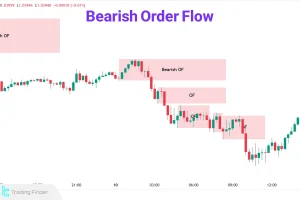Forex trading is a highly complex market. To do well, you need to understand complicated economic fundamentals and indicators.
You must also be able to use complex trading tools like a stop-loss order and a take-profit order. Finally, you must be able to handle the high risk-reward ratio of Forex trading.
1. Learn the Basics
Learning how to trade forex takes time and effort, but with dedication and patience, it is possible to become a profitable forex trader. It is recommended to start with a demo account and gradually work your way up to a live trading account as you gain experience and confidence.
A good broker should offer a variety of services and features to attract beginners. These include a user-friendly trading platform, educational resources, and customer service. Reputable brokers also offer a demo account, which allows beginners to practice and test their trading skills without risking real money.
Currencies are traded in pairs, and trades are made based on the assumption that one currency will increase or decrease in value relative to another. Forex traders can make a profit by correctly forecasting these price movements. Leverage is a powerful tool when used properly but can be dangerous if overused, and this is why risk management is the most important aspect of any trading strategy.
2. Find a Good Broker
The internet has made it easier than ever to open a broker account and invest in the financial markets. However, not all brokers are created equal. A good broker will have a clean reputation, be regulated by one of your country’s top regulators (like the FCA in the UK or CFTC in the US), and offer transparent trading fees.
Another important factor is customer support. A good broker will be responsive to your questions and concerns, especially when things aren’t going as planned.
Finally, a good broker will offer a demo account that allows you to trade in the real market using fake money. This will allow you to test out different strategies without risking your own money.
3. Open a Demo Account
Many forex brokers offer the option of opening a demo account. This is a great way to practice trading without risking your real money. The demo account will allow you to trade using virtual money and see how the market moves without the emotional roller coaster of risking real capital.
A demo account will also help you learn the ins and outs of trading. It will teach you how to read charts and graphs, choose a trading strategy, and manage your risk by setting up stops and using discipline. You will also learn how to manage your emotions by keeping a trading journal and mental diary, which will help you evaluate your performance and understand your own psychological reactions to the market.
Experts suggest that beginners should spend at least 3 to 4 months practicing on a demo account before transitioning to a live account. This will give you a chance to choose a broker, learn strategies, and experiment with different currency pairs.
4. Start Trading
Forex trading is a fast-paced market and it takes time to learn the ropes. It is essential to develop a disciplined approach to trading that includes education on the markets, trading terminology and learning how to use a trading platform. It is also important to work on your trading psychology.
It is crucial to remember that one bad trade can wipe out your entire trading balance, so it is best not to risk more money than you can afford to lose. One of the best ways to practice is by opening a demo account with a broker. This allows you to trade with virtual money and it is a great way to get started.
It is important to choose a reputable forex broker that offers good educational information for beginners. Additionally, look for a broker that offers an intuitive trading platform and excellent customer service. It is also important to remember that forex trading involves a significant risk of loss, so it is important to only trade with money that you can afford to lose.





